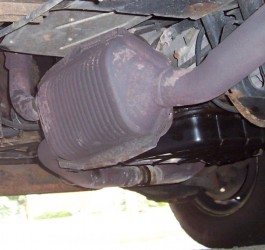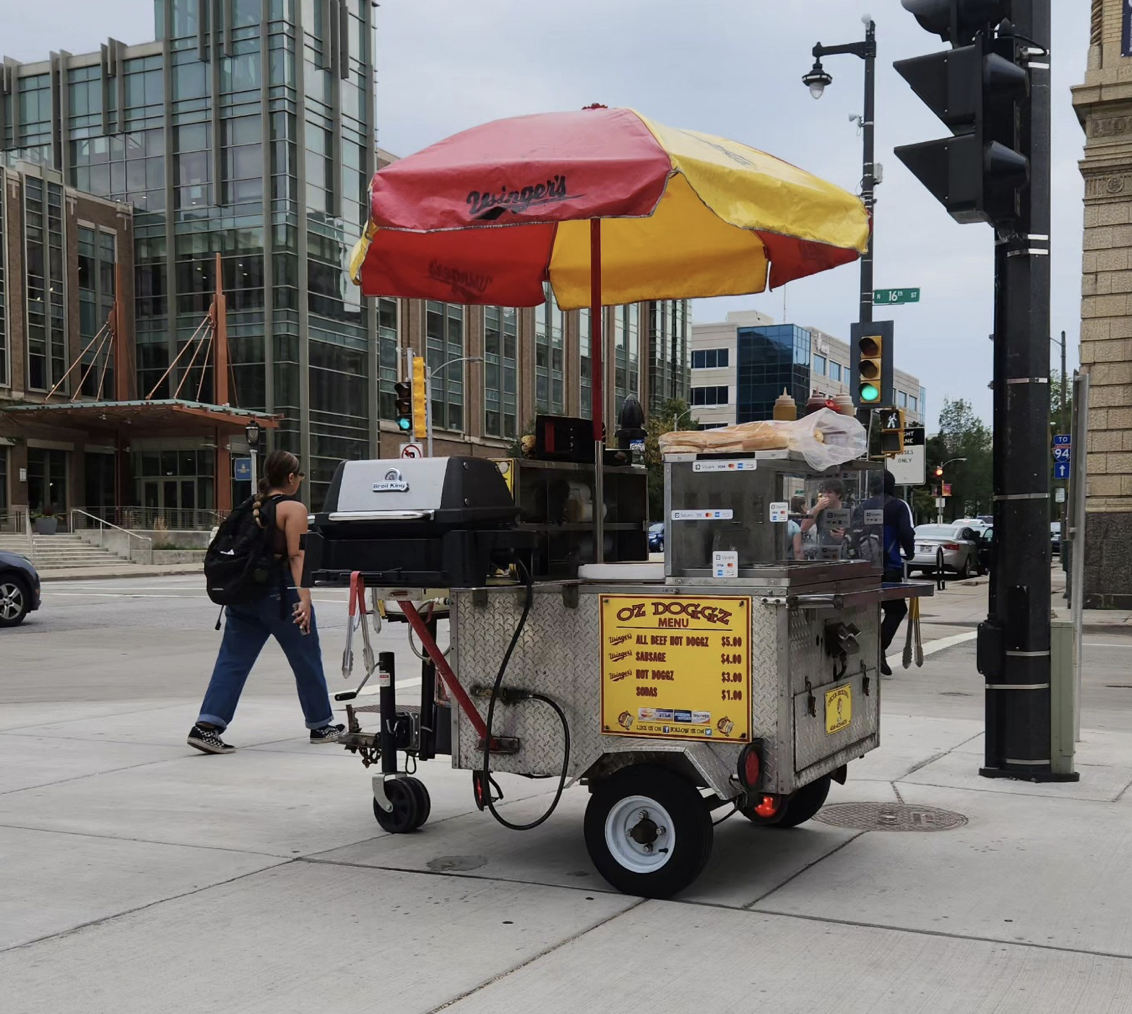
The Department of Public Safety has been reporting a strange kind of campus crime lately: the removal of catalytic converters from parked cars.
A catalytic converter is part of the exhaust system and contains a special catalyst device that turns toxic chemicals into safer, less harmful ones. Without a catalytic converter, drivers and passengers can directly inhale carbon monoxide, which is very dangerous and bad for the environment.
The first reported case of a stolen catalytic converter took place Jan. 27 in the 2000 block of W. Wisconsin Ave., and the second happened between Feb. 8 and 10 in the 1800 block of W. Wisconsin Ave. Both were considered off-campus incidents, according to DPS reports.
DPS Capt. Russell Shaw described these crimes as a “rarity” in the area. He advises students to only park on well-lit streets and to avoid staying in the same spot for days on end as someone could be casing the area for activity. He also stressed the importance of a car alarm.
Shaw said the perpetrator would likely be stealing the part — generally located under the car — to make money. Many of the metals used in the converter can be easily sold to scrap metal businesses.
A number of expensive, precious metals are used to make catalytic converters, including platinum, rhodium and palladium. Selling the stolen parts could generate anywhere from $50 to $250.
But they’re much more expensive to replace. The estimated total cost of damages in the two Marquette incidents are $2,300 and $4,000.
“Stealing a catalytic converter takes time and tools, and seeing someone working under a vehicle in a dark or secluded area should raise suspicion,” Shaw said.
Like any crime commited on Marquette’s campus, the university’s response to the incidents was a joint effort between DPS and the Milwaukee Police Department.
Jenna Larkins, a senior in the College of Business Administration, found the news of the stolen converters to be extremely upsetting.
“I feel like that’s something that wouldn’t be too hard to catch, especially on Wisconsin Avenue,” Larkins said. “Don’t we have DPS walkers and LIMOs over there all the time?”
Kelsey Ribordy, a junior in the College of Nursing, said she isn’t as concerned because her vehicle is kept in a locked garage with a gate.
“I’m really careful when I drive places and I try to park so my car is in view when I’m inside whatever building I’m in,” she said.
Larkins said she intentionally parks her vehicle by her window so she can keep an eye on it. If she hears an odd noise, she can easily and immediately check to see if it is her vehicle.
“Parking in Milwaukee is stressful as it is,” Larkins said. “It’s even worse now that you can’t park your car in the street without worrying about (it).”






